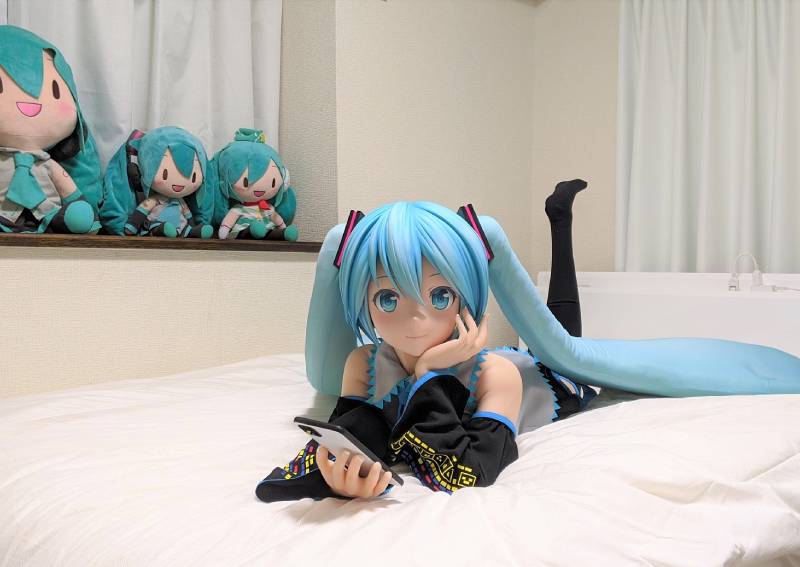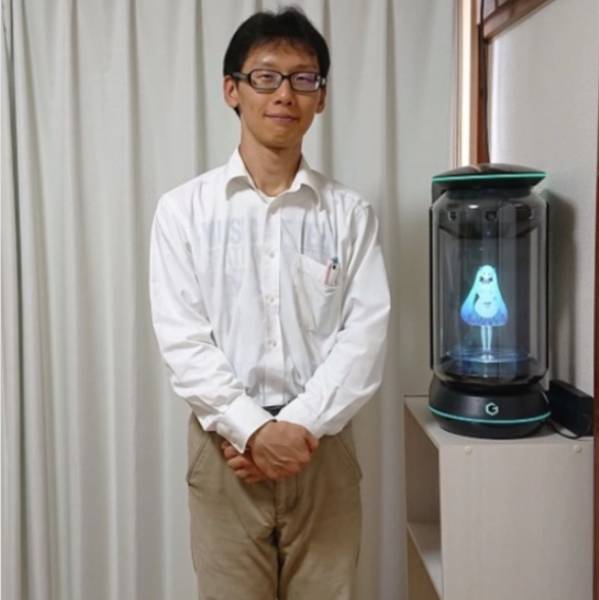Japanese man marries virtual character Hatsune Miku and wants you to know about fictosexuals


Akihiko Kondo made news in 2018 when he married a virtual character, the Vocaloid virtual songstress Hatsune Miku. Though the marriage is not recognised by law, his actions opened up the discussion about people who are attracted to virtual characters.
In Japanese, this attraction is called nijikon, but in the English-speaking world, we have started to use the term, 'fictosexual'.
Kondo's story began in 2008, when he became depressed after being bullied by female co-workers. He found solace in the videos of Hatsune Miku, a 16-year-old singing avatar that now has over 100,000 songs released worldwide.
He binge-watched them 24 hours a day which helped him cope and sleep at night. The videos got him through his depression and back into society, but the attraction that formed remained and a relationship bloomed.

A decade later, Kondo married Miku at an unofficial ceremony in Tokyo. His co-workers and family refused to attend. Since then, he has been sharing photos of life with his assortment of Miku dolls on Twitter and Instagram.
Some may find the whole thing weird and creepy, or that he's delusional. The thing is, 38-year-old Kondo knows Miku isn't real. But his feelings for her are.
"When we're together, she makes me smile," he says. "In that sense, she's real."
[embed]https://twitter.com/yamadataro43/status/1059082519407022080?ref_src=twsrc%5Etfw%7Ctwcamp%5Etweetembed%7Ctwterm%5E105908251940702[/embed]
His very public wedding has spurred discussions and awareness of people that identify as 'fictosexuals'. In Japan, there are thousands of people who have entered into relationships with fictional characters, with a growing industry that supports a fervent manga and anime culture.
'Fictosexuals' are expected to grow in numbers in the near future as advances in virtual reality, artificial intelligence and robotics create even more life-like interactions in both the metaverses and real life.

Society at large still scorns people who are attracted to virtual characters, similar to what people in the LGBTQ community face not many years ago. Kondo wants to change that, but he says that what he is doing is not a political movement. All he wants is for 'fictosexuals' to be seen: "It's about respecting other people's lifestyles."
To that end, his widely-shared wedding has opened some doors for him. In 2019, he was invited to join a symposium at Kyoto University to speak about his relationship. At this event, as well as at other lectures, he was asked a wide range of questions that include the mental and physical effects of marriage with a two-dimensional character.
[embed]https://www.instagram.com/p/CEjT0T1Jpfz/?utm_source=ig_web_copy_link[/embed]
"The students asked me questions very earnestly," he says. "But I didn't have the legal knowledge and I was left disappointed that I was unable to provide sufficient answers."
This made him think about going back to school. In 2021, he enrolled in the Faculty of Law at Komazawa University to study minority rights and, armed with what he is learning, he hopes to continue bringing better awareness and acceptance of 'fictosexuals'.
ALSO READ: Jujutsu Kaisen goes the high-fashion route with Dolce & Gabbana collection
This article was first published in Geek Culture.